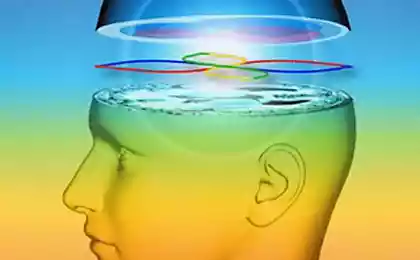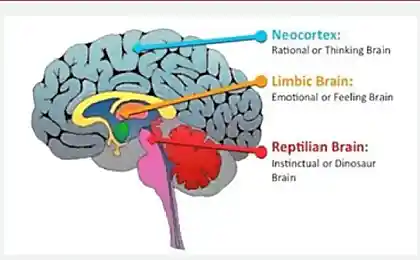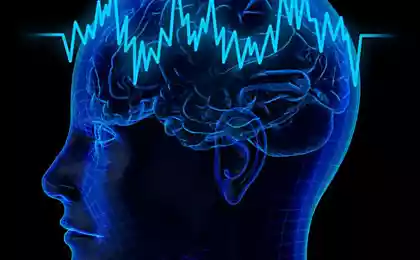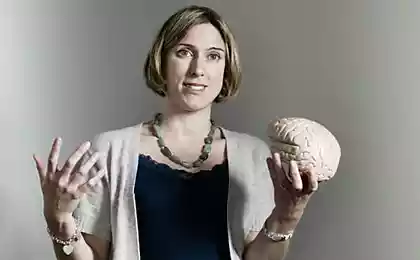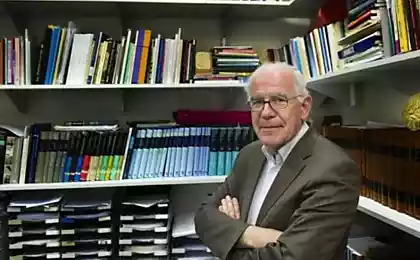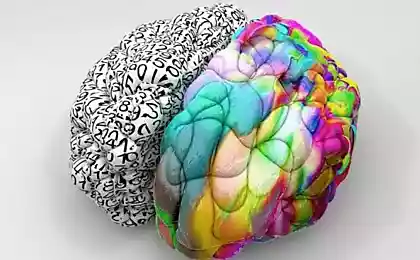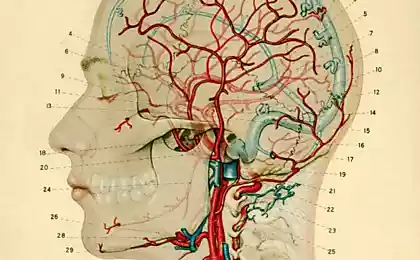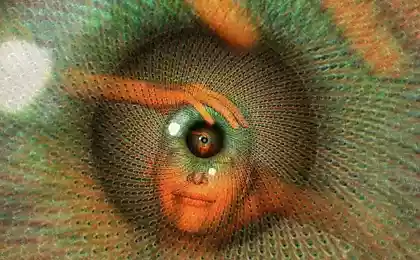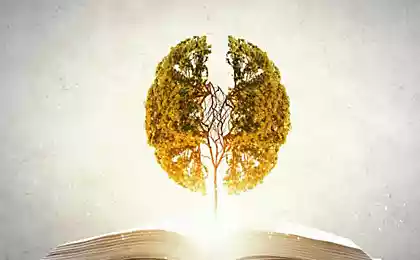634
8 features our brain is still not solved by scientists
Brain. This is one of the most complex and incomprehensible organs of the human body. Whether it even easier, we still have not managed to grasp it, alas. Because they themselves would then be much more stupid. The powerful arsenal of modern technology and old-fashioned psychology has helped us to make many discoveries about this mysterious object. However, a clot of gray matter located at us between the ears, still keeps many mysteries that even the best neuroscientists puzzled scratching his head.
How a simple cluster of cells create memories, feelings, consciousness? Think about it, what a miracle: electrical impulses of the brain in combination with certain words on the screen can draw in your imagination green man, motivate you mentally shout that phrase, to recognize in some meaningful words flourish, eventually
!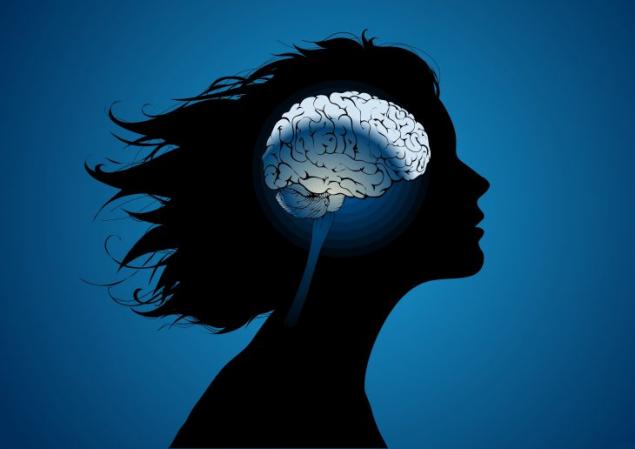
Bagazhznaniy.ru Website publishes a selection of questions that now unsuccessfully fighting the world's leading neuroscientists, neurophysiologists and neuroeconomists.
How the brain such speed? We hear a comparison of the human brain with a supercomputer, but in fact the brain is awfully slow. The speed at which signals are transmitted on it, is approximately one millionth of the speed of signal transmission in a computer.
Nevertheless, we recognize those songs and even odors instantly, and the computer it takes much longer - although technically it is faster. This paradoxical speed, probably due to the brain's ability to parallel processing. But how to explain this very ability?
< The more complicated multiple parallel processes? The fact that they offer the same variety of different results at the same time. That's why your computer is slow in making a decision. However, the brain mysteriously sorts the results with lightning speed and produces one single thought, behavioral response or a memory.
Where does personality? We have a brain. Although more precise, perhaps, will say, we have our brains. It seems that this soft substance, located in the head, and hides itself in our personality (that would be wonderful, if it is discovered, for example, in the intestines). How does the brain makes us us?
The eternal debate: nature or nurture? What is our identity is determined by genes and psychology, and what is nurtured environment? < The point is this: our personality is simply obliged to reside in the brain, but for hundreds of years, we've never been able to identify for certain the nature of man looking at his brain - and even more so, on the genes
<. br> Perhaps those are right who support the endless debate "toward education"? Is not a fact. Why, then, people that grew in the same environment, have a completely different personality?
Why do we sleep and dream? Sleep is extremely important, no questions. A considerable part of the day - and a third of all life - we have to carry out in a state of unconscious and defenseless. It is not so easy, and sometimes risky, yet all mammals, reptiles and birds sleep. We have no doubt that sleep is vital for us, but do not have a clue why.
The main thing - it is not clear how the dream in general gives us energy. < Her we get in the process of digestion of food, but try to replace sleep eating - and you will not last a long time During sleep, we burn a decent amount of power, but on waking feel fresher and more energetic than before.. How and why ?! This puts scientists in a deadlock.
With dreams the same. Versions their account enough: disorderly excitation of neurons, translation memories into long-term memory, deep learning ... Today, however, the dream remains a mystery, like a thousand years ago
How to store memories.? Well, a quick call to his memory yesterday's breakfast, first kiss or the first day of school. Happened? But as? How do you call those memories? Where were they?
Memories are stored in our brain in the form of a code, like the contents of a computer hard disk. Probably. At least, neuroscientists assumed that the memory is arranged just so, because otherwise it can not be arranged. However, where in fact inhabit our memories, while we do not think about them? Unknown.
In addition, there are several types of memory. One allows you to recall the first kiss, the other helps to remember the name of a new acquaintance. But the memory - it is not only a record of information, but also a way to use it. For example, the memory of the appearance of one particular cat helps identify other cats - even if they have a different color, size of the country and do not have enough legs. Moreover, you can even imagine a nonexistent cat! . In this regard, memory and imagination are very similar
It is believed that memories are not stored in the form of separate "binary", as the information in the computer - rather, they are the result of different combinations of excited neurons. we still do not know how memories are formed at all, why selectively disappear, and where do their evil "counterparts" (fake).
Are we just computers? Today, it is widely believed as if the human mind in its essence - a classic information processor. computer. The highly developed and perfect - but the computer
. If so, then we will be able to reproduce an artificial human intelligence in a machine. At the appropriate level of detail and complexity of such a computer would have the human consciousness and would be completely indistinguishable from the living intelligence.
However, they believe it is not all. Many are convinced that the brain is not amenable to computation, and that no reverse engineering does not help us to recreate it. Some experts say: the organic brain is fundamentally different from the computer. Because brain function is based on the nonlinear interaction of billions of cells, while the computer has only zeros and ones of binary code.
The human brain is capable of handling one data but can not others. If we will look, what's the difference between them, you probably will find the key to understanding the brain, all of its secrets and mysteries.
Do we have free will in? Free will - the concept of the abstract. Hardly it can be seen on an MRI. And in general, how it relates to the field of neuroscience? Or is it a philosophy? Who knows ... Scientists have observed, to observe how the philosophers for millennia break about this spear, and decided to join. The result was not very comforting.
Research began in the eighties of the twentieth century, they were later repeated by applying the most advanced technologies. The subject is asked to perform voluntary movements with your fingers. < So, the brain activity "test" showed: their subconscious "Play" action for a full second before plugged mind
. Some conclude from this that free will is an illusion, that trick the brain causes us to "retroactively" to believe in their own voluntary actions and deeds. Other research data ignore or do not agree with this conclusion. However, the first suspect that the second just scared to believe in the output of the first and the accuracy of the information has nothing to do with it.
Why all the brain works so seamlessly and smoothly? Neuroscientists do not get tired amazed at how smoothly the human brain works: after our every thought and every movement born from a huge number of chaotic electrical impulses. The brain receives various signals from the different senses in different times. Can you imagine how difficult it is to cope with such information leapfrog
Our brain - the great magician Let's, for example, clap your hands in front of him.. Light is known to extend the speed of sound. However, the auditory system processes the signal faster visual and disposal of cotton (according to our arguments about free will) go to the body more before we do anything realized. Just mad sequence of events! But the brain is somehow arrange everything perfectly so that we do not notice anything.
Imagine how much precision and skill needed to thread a needle, kick the ball, even to print a message on your mobile phone! This requires coordinated work of the plurality of our body systems. And the brain to cope with this task perfectly.
What is consciousness? This is perhaps the greatest mystery of the human mind: how the brain creates consciousness? The answer is not far off. A group of scientists even found in the brain, "on / off button":.. When it is switched off and the stimulation of the patient comes to life as soon as the stimulation stopped. < Only it does not explain what is consciousness.
Some believe that it is - the fruit of many complex interconnections in the brain; others believe in some special point, where "everything converges", and some even called the consciousness quantum effect. The correct answer is, we simply do not know.
Take, for example, morning. The alarm clock is ringing. A moment ago you were still asleep, and now awake. How did this happen? What is the difference between the two states? Why is a strong blow to the head off of our mysterious consciousness? And in general - whether all the "feel" their minds are equally
? It's amazing, right? Try to solve at least one of these secrets - and grateful mankind will declare your brain is the smartest
! via factroom.ru
How a simple cluster of cells create memories, feelings, consciousness? Think about it, what a miracle: electrical impulses of the brain in combination with certain words on the screen can draw in your imagination green man, motivate you mentally shout that phrase, to recognize in some meaningful words flourish, eventually
!

Bagazhznaniy.ru Website publishes a selection of questions that now unsuccessfully fighting the world's leading neuroscientists, neurophysiologists and neuroeconomists.
How the brain such speed? We hear a comparison of the human brain with a supercomputer, but in fact the brain is awfully slow. The speed at which signals are transmitted on it, is approximately one millionth of the speed of signal transmission in a computer.
Nevertheless, we recognize those songs and even odors instantly, and the computer it takes much longer - although technically it is faster. This paradoxical speed, probably due to the brain's ability to parallel processing. But how to explain this very ability?
< The more complicated multiple parallel processes? The fact that they offer the same variety of different results at the same time. That's why your computer is slow in making a decision. However, the brain mysteriously sorts the results with lightning speed and produces one single thought, behavioral response or a memory.
Where does personality? We have a brain. Although more precise, perhaps, will say, we have our brains. It seems that this soft substance, located in the head, and hides itself in our personality (that would be wonderful, if it is discovered, for example, in the intestines). How does the brain makes us us?
The eternal debate: nature or nurture? What is our identity is determined by genes and psychology, and what is nurtured environment? < The point is this: our personality is simply obliged to reside in the brain, but for hundreds of years, we've never been able to identify for certain the nature of man looking at his brain - and even more so, on the genes
<. br> Perhaps those are right who support the endless debate "toward education"? Is not a fact. Why, then, people that grew in the same environment, have a completely different personality?
Why do we sleep and dream? Sleep is extremely important, no questions. A considerable part of the day - and a third of all life - we have to carry out in a state of unconscious and defenseless. It is not so easy, and sometimes risky, yet all mammals, reptiles and birds sleep. We have no doubt that sleep is vital for us, but do not have a clue why.
The main thing - it is not clear how the dream in general gives us energy. < Her we get in the process of digestion of food, but try to replace sleep eating - and you will not last a long time During sleep, we burn a decent amount of power, but on waking feel fresher and more energetic than before.. How and why ?! This puts scientists in a deadlock.
With dreams the same. Versions their account enough: disorderly excitation of neurons, translation memories into long-term memory, deep learning ... Today, however, the dream remains a mystery, like a thousand years ago
How to store memories.? Well, a quick call to his memory yesterday's breakfast, first kiss or the first day of school. Happened? But as? How do you call those memories? Where were they?
Memories are stored in our brain in the form of a code, like the contents of a computer hard disk. Probably. At least, neuroscientists assumed that the memory is arranged just so, because otherwise it can not be arranged. However, where in fact inhabit our memories, while we do not think about them? Unknown.
In addition, there are several types of memory. One allows you to recall the first kiss, the other helps to remember the name of a new acquaintance. But the memory - it is not only a record of information, but also a way to use it. For example, the memory of the appearance of one particular cat helps identify other cats - even if they have a different color, size of the country and do not have enough legs. Moreover, you can even imagine a nonexistent cat! . In this regard, memory and imagination are very similar
It is believed that memories are not stored in the form of separate "binary", as the information in the computer - rather, they are the result of different combinations of excited neurons. we still do not know how memories are formed at all, why selectively disappear, and where do their evil "counterparts" (fake).
Are we just computers? Today, it is widely believed as if the human mind in its essence - a classic information processor. computer. The highly developed and perfect - but the computer
. If so, then we will be able to reproduce an artificial human intelligence in a machine. At the appropriate level of detail and complexity of such a computer would have the human consciousness and would be completely indistinguishable from the living intelligence.
However, they believe it is not all. Many are convinced that the brain is not amenable to computation, and that no reverse engineering does not help us to recreate it. Some experts say: the organic brain is fundamentally different from the computer. Because brain function is based on the nonlinear interaction of billions of cells, while the computer has only zeros and ones of binary code.
The human brain is capable of handling one data but can not others. If we will look, what's the difference between them, you probably will find the key to understanding the brain, all of its secrets and mysteries.
Do we have free will in? Free will - the concept of the abstract. Hardly it can be seen on an MRI. And in general, how it relates to the field of neuroscience? Or is it a philosophy? Who knows ... Scientists have observed, to observe how the philosophers for millennia break about this spear, and decided to join. The result was not very comforting.
Research began in the eighties of the twentieth century, they were later repeated by applying the most advanced technologies. The subject is asked to perform voluntary movements with your fingers. < So, the brain activity "test" showed: their subconscious "Play" action for a full second before plugged mind
. Some conclude from this that free will is an illusion, that trick the brain causes us to "retroactively" to believe in their own voluntary actions and deeds. Other research data ignore or do not agree with this conclusion. However, the first suspect that the second just scared to believe in the output of the first and the accuracy of the information has nothing to do with it.
Why all the brain works so seamlessly and smoothly? Neuroscientists do not get tired amazed at how smoothly the human brain works: after our every thought and every movement born from a huge number of chaotic electrical impulses. The brain receives various signals from the different senses in different times. Can you imagine how difficult it is to cope with such information leapfrog
Our brain - the great magician Let's, for example, clap your hands in front of him.. Light is known to extend the speed of sound. However, the auditory system processes the signal faster visual and disposal of cotton (according to our arguments about free will) go to the body more before we do anything realized. Just mad sequence of events! But the brain is somehow arrange everything perfectly so that we do not notice anything.
Imagine how much precision and skill needed to thread a needle, kick the ball, even to print a message on your mobile phone! This requires coordinated work of the plurality of our body systems. And the brain to cope with this task perfectly.
What is consciousness? This is perhaps the greatest mystery of the human mind: how the brain creates consciousness? The answer is not far off. A group of scientists even found in the brain, "on / off button":.. When it is switched off and the stimulation of the patient comes to life as soon as the stimulation stopped. < Only it does not explain what is consciousness.
Some believe that it is - the fruit of many complex interconnections in the brain; others believe in some special point, where "everything converges", and some even called the consciousness quantum effect. The correct answer is, we simply do not know.
Take, for example, morning. The alarm clock is ringing. A moment ago you were still asleep, and now awake. How did this happen? What is the difference between the two states? Why is a strong blow to the head off of our mysterious consciousness? And in general - whether all the "feel" their minds are equally
? It's amazing, right? Try to solve at least one of these secrets - and grateful mankind will declare your brain is the smartest
! via factroom.ru
20 most admired works of contemporary artists, writers oil
5 wonderful stories with morals that make you think


